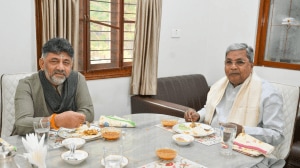A Delhi court on Friday pulled up the CBI over the closure report filed in a coal block allocation case against Kumar Mangalam Birla-owned Hindalco after the investigating agency told the court that the original minutes of screening committee meeting, in which Hindalco’s application seeking coal blocks was taken up, were “missing”.
Special Judge Bharat Parashar told the CBI that it should “keep its house in order”, failing which the court would start “start imposing cost on the top officials of the CBI and deduct the cost from their salaries”. Stating that the CBI had made a “mockery” of the closure report, Parashar asked the agency why it was in a “hurry” to file one.

The agency, which informed the court that primary evidence containing original minutes of the screening committee meeting was missing, was asked by the judge to submit written documents to back the same. “Show if there was any statement which says that original minutes of the meeting of the screening committee were missing… did you think the court will accept the closure report with closed eyes?” Parashar said.
The investigation officer (IO), who failed to submit the primary evidence containing original minutes of the meeting, had submitted secondary evidence in support of the closure report, saying that the “relevant” bank officials have authenticated the same.
The court responded: “Can a bank official authenticate the documents of the Coal Ministry? What provisions of the law prevented you take authentication from the ministry officials. How can you submit secondary evidence like this?”
Court proceedings then saw another twist as the judge ordered the IO to get the police file and the case diary within an hour from its Delhi headquarters, based on which the agency had initiated the preliminary enquiry into the case. “What kind of investigation have you done? What was the supervisory officer (SO) doing? Bring the police file and case diary and call your supervisory officer to the court now,” the judge told to the IO.
The SO, who then appeared before the court, was told: “You have a legal department. I am sure you have consulted them before filing the closure report. When you filed the report, have you at least made sure that it is legally sustainable?”
Story continues below this ad
The court questioned the SO further and asked whether the agency had “analysed” the facts of the case according to the evidence Act. “You have collected the facts and suddenly jumped to a conclusion. My query is, did you even understand the facts of the case according to the evidence Act before coming to a conclusion? Every chargesheet should run like a story. There is no sequence in your story,” the special judge said.
The court also asked the CBI if the Coal Ministry followed guidelines laid down for coal block allocation and added, “Tell me if there was any deviation in coal block allocation to Hindalco. If any, was it within the permissible limits? Your closure report is silent on this,” the court said. The court also asked the CBI to explain why it had ruled out the “element of criminality” in the allocation to Hindalco.
The court also pulled up the CBI for “dumping” illegible documents before it. “Some of the papers filed along with the final reports are blank. Around eight pages are also missing. I won’t accept any such documents from next time. This is not the first time I have pulled up the IO. The problem is your IO does not bother to tell you what happens in the court,” the court told the SO.
Fixing the next date of hearing on September 22, the court said , “I don’t know what I would ask in the next hearing. But I want your prosecutor to be ready with all the relevant documents, failing which I will start imposing cost on the top officials of the CBI and deduct the cost from their salaries,” the judge said.
































